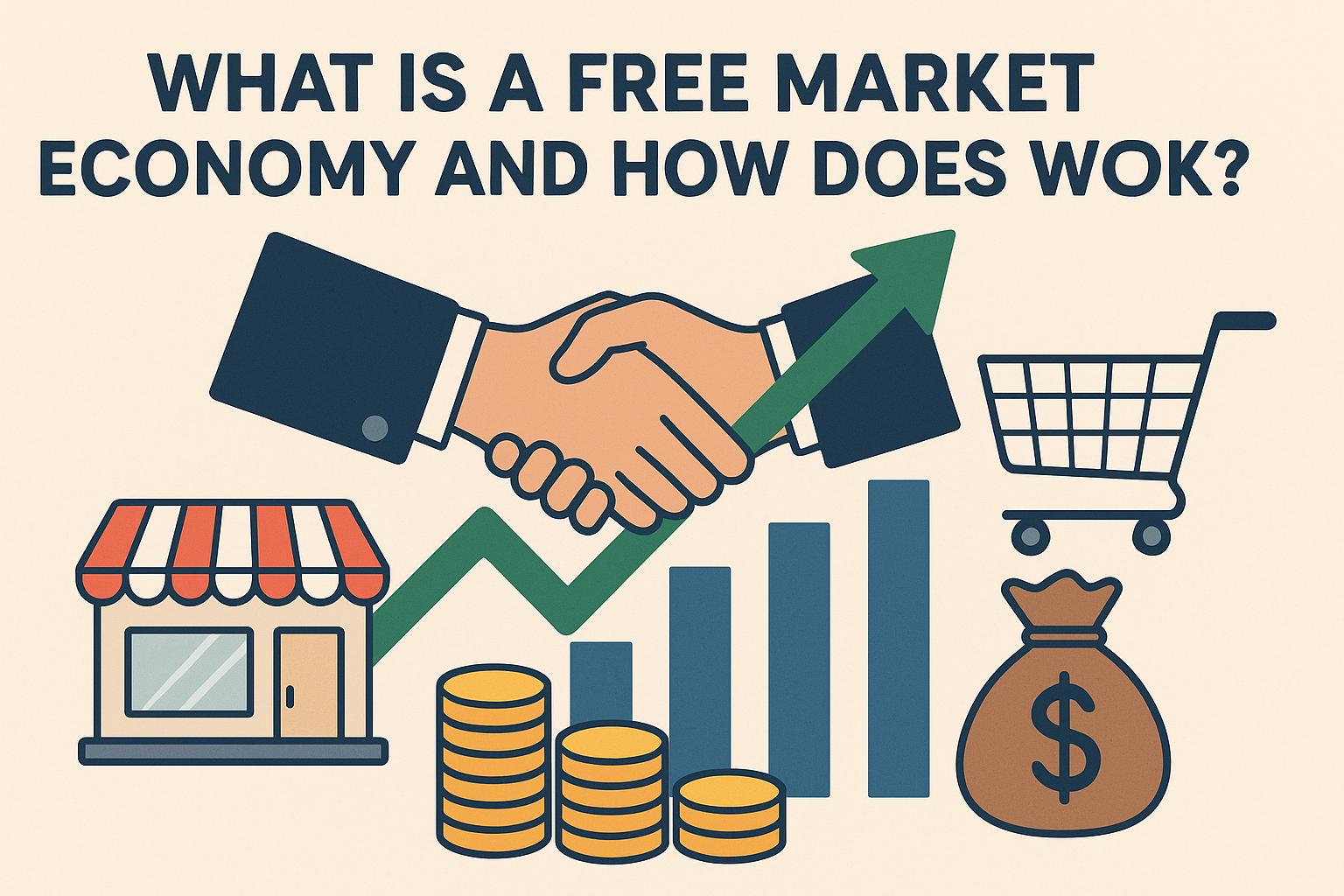What is a Free Market Economy and How Does It Work?
- Written by: admin
- Category: Uncategorized
- Published: August 28, 2025

Understanding a Free Market Economy
A free market economy is an economic system where the prices of goods and services are determined by the forces of supply and demand within an open market. In this environment, the interacting forces of supply and demand are uninfluenced by any governmental or monopolistic interference. This economic model is rooted in the belief that competition fosters efficient resource production and allocation, ultimately benefiting consumers and spurring innovation.
Key Features of a Free Market Economy
A free market economy is characterized by certain distinct features that differentiate it from other economic models:
1. Voluntary Exchange: One of the fundamental aspects of a free market economy is the freedom for individuals and businesses to engage in voluntary trade. In such a marketplace, buyers and sellers can negotiate terms that are mutually beneficial, without any external pressure or coercion. This mechanism helps in the efficient distribution of goods and services, as well as in determining fair prices.
2. Competition: The lack of government interference leads to a competitive business environment. This competition is crucial as it pushes businesses to improve the quality of their goods and services, diversify their offerings, and enhance efficiency. As companies vie for consumers’ attention, the market naturally weeds out less efficient players, leading to a dynamic and self-regulating economic system.
3. Private Property: An essential component of a free market economy is the concept of private property. Individuals have ownership and control over resources and assets, which incentivizes them to innovate and enhance their offerings to maintain a competitive edge. Private ownership also promotes accountability, as individuals are responsible for their property and its productive use.
4. Profit Motive: The driving force behind many activities in a free market economy is the pursuit of profit. This motivation encourages entrepreneurs and companies to take calculated risks and adopt innovative practices, propelling economic growth and development. The quest for profit leads to advancements in technology and processes, fueling a cycle of innovation and efficiency.
The Role of Government in a Free Market Economy
While the principle of minimal government interference is a cornerstone of a free market economy, the government still has significant responsibilities in ensuring its smooth operation. Primarily, governments maintain law and order, protecting property rights and enforcing contracts to create a stable economic environment. This legal framework ensures that businesses can operate efficiently and that consumers have trust in the market’s fairness.
On occasion, governments might intervene to address significant market failures. For example, monopolies can hamper competition, and excessive pollution can harm public welfare. In such cases, governments may implement regulations to correct these imbalances, ensuring that the market remains competitive and sustainable. These interventions are typically designed to preserve the integrity of the market and protect consumers from potential harms.
Advantages of a Free Market Economy
The free market economy offers a range of advantages to both consumers and businesses:
Efficiency: By allowing market forces to set prices, resources are allocated to their most productive uses, minimizing waste and enhancing production efficiency.
Innovation: The drive to outperform competitors leads businesses to invest in new technologies and processes, resulting in a steady stream of innovative products and services.
Consumer Choice: With numerous businesses competing for consumers’ attention, there is a wide array of products and services available, catering to diverse needs and preferences.
Economic Growth: The profit-seeking motive encourages businesses to expand their operations, translating into increased economic activity and job creation.
Challenges of a Free Market Economy
Despite its benefits, a free market economy is not without its challenges:
– Income Inequality: In the absence of regulatory frameworks, disparities in wealth and income can emerge, leading to social inequities and potential unrest.
– Market Failures: Situations can arise where market forces alone fail to achieve optimal outcomes, such as environmental degradation or monopolistic practices. In these instances, government intervention may be required to restore balance.
– Economic Fluctuations: Free markets are susceptible to cycles of boom and bust, which can result in economic instability and uncertainty for businesses and consumers.
The ongoing debate among economists and policymakers revolves around the merits and drawbacks of a free market economy. While the advantages are substantial, striking the right balance between economic freedom and necessary regulation is critical to maximizing potential benefits while minimizing negative impacts. This balance ensures that the economy continues to function efficiently, with the welfare of society as a primary consideration. Through careful consideration and informed policymaking, the free market economy can evolve to meet the needs of an ever-changing world.
This article was last updated on: August 28, 2025

